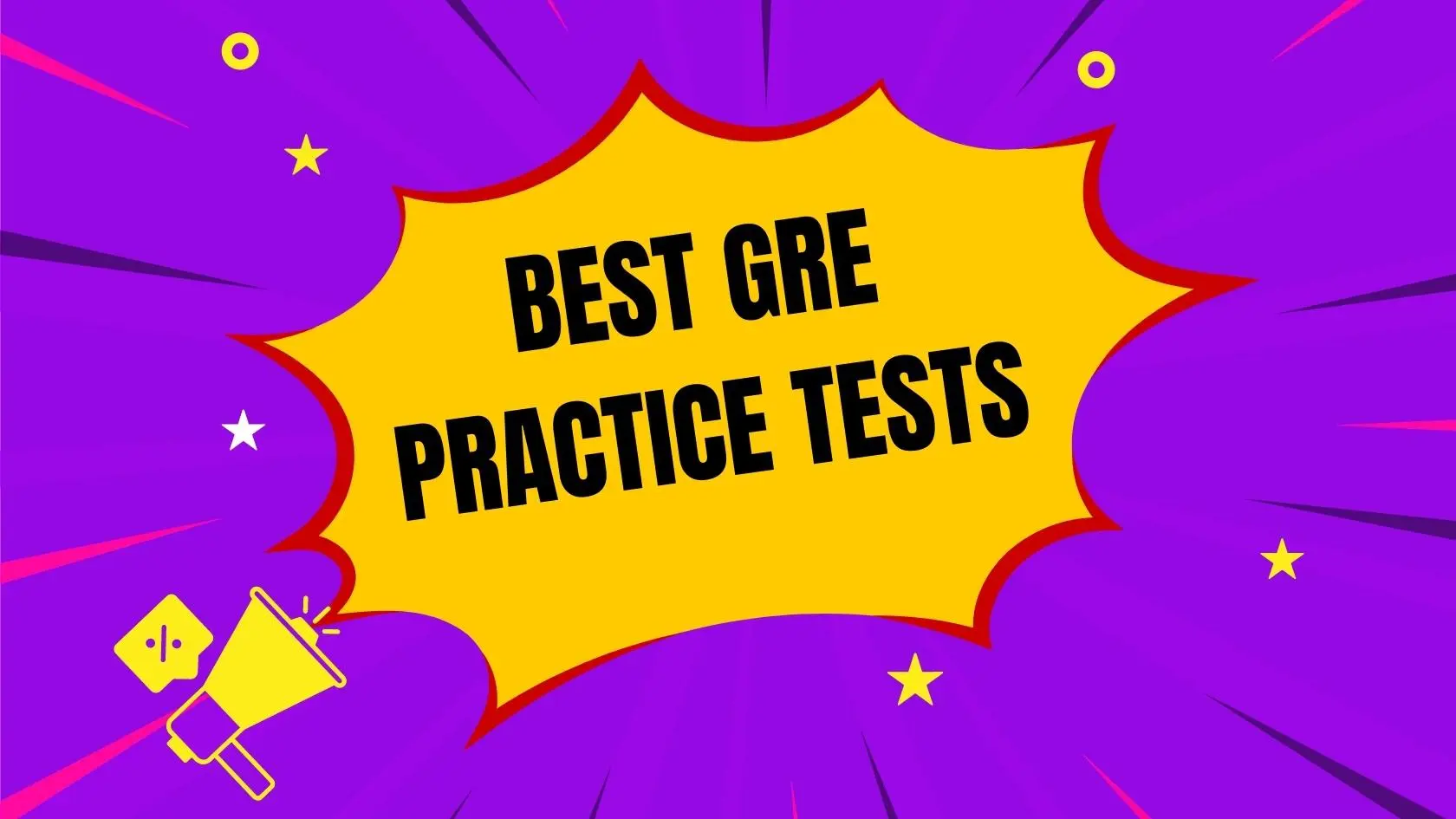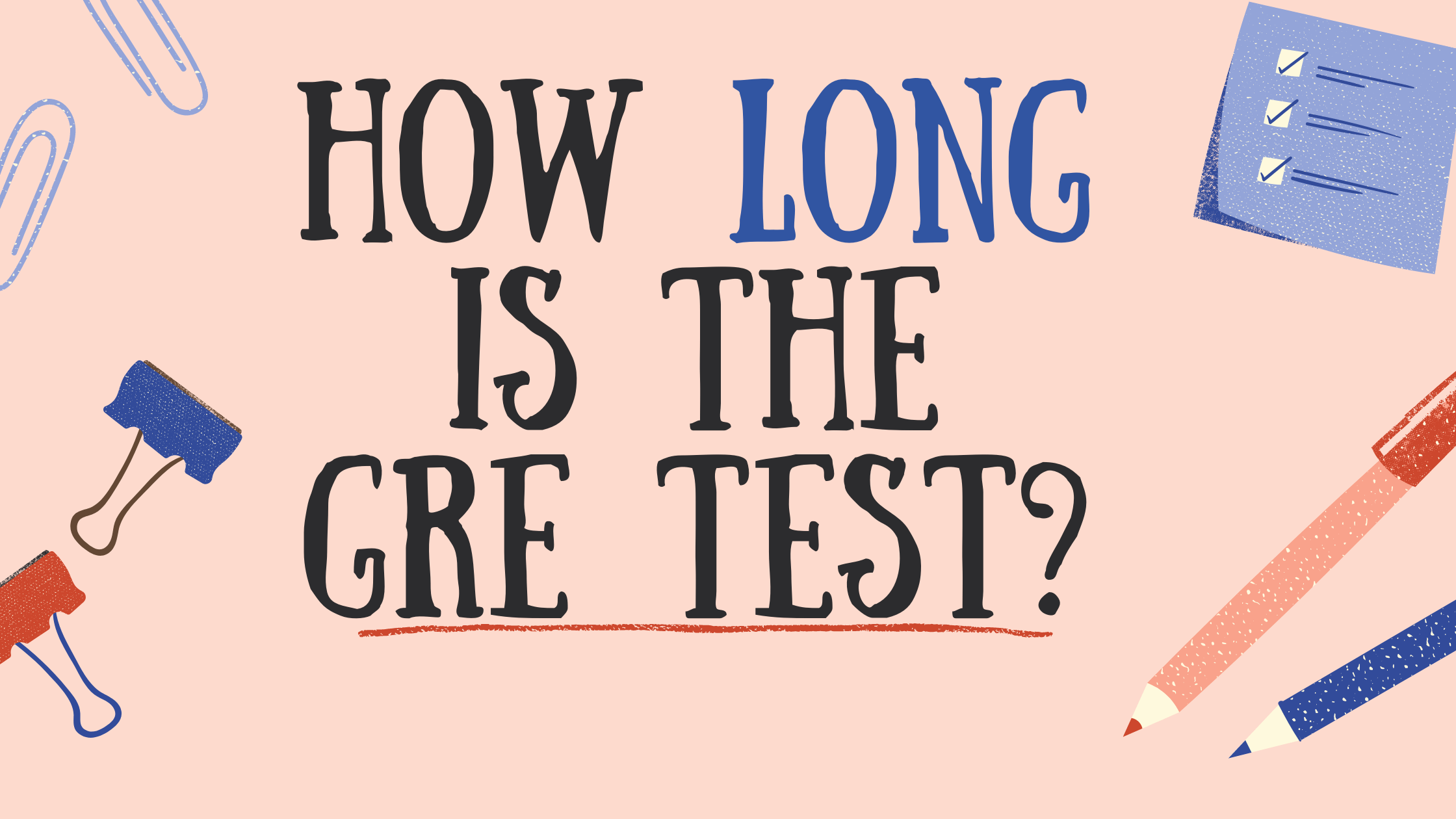GRE Preparation Study Hacks
With a plethora of resources at our fingertips, it can be difficult to sort out the most useful ones. That’s true for the case of GRE as well. There are enough resources for GRE preparation that it will last you more than five years. So, how do you prepare for the GRE test, especially in the crunch of time?
This article will introduce you to some great GRE tips and tricks, as well as GRE preparation hacks that will save you time AND be more effective than going through each and every resource piecemeal. Therefore, the most important step is to sift through the resources to check for and discard the outdated ones.
Below are some of the best hacks to study for the GRE:
Hacks for Diagnostic and Mock Tests:
#1: First things first, take the diagnostic test to identify your areas of strength and improvement. After you have taken your diagnostic test, set a realistic target score depending on how much time you have for the preparation.
Schedule your preparation time depending upon your weak points–for example, if you have gotten a less than the ideal score in the Algebra portion of your Quantitative, you may want to alot it more time than other topics.
#2: Clarify all concepts before jumping on to practice questions, both for verbal and quantitative concepts.
#3: As a rule of thumb from our scholarden mentors, take at least 10 mock GRE tests simulating the real test before the actual GRE.
#4: During these tests, if you realize that there are some topics or questions in which you are consistently scoring lower, it may be because your base concepts are not understood. Instead of doing practice questions over and over again, clear out your conceptual understanding foremost.
#5: Practice the questions in ascending order of the difficulty level. Start with easy questions, then medium, and then move over to the hard ones.
#6: After each mock test, review your mistakes. If you find out that the problem lies not in the calculation, but in conceptual understanding, cater to the concept first.
#7: Use the right action at the right time. For example, if you feel that you aren’t able to grasp complex sentences in your Verbal section, doing comprehension questions over and over will not help. In this case, the right action would be to read more and increase vocabulary knowledge.
#8: Not all FREE resources are necessarily also useful. If you don’t know where to begin, ask a professional or a mentor. Our scholarden mentors have excellent GRE test-taking skills with incredible results.
Hacks for Scoring:
The GRE is an adaptive test. There are a total of 4 sections–2 for verbal and 2 for quantitative. The first section of each subject is always “Medium” level difficult. However, the difficulty of the second section depends upon how well you score in the first.
For example, scoring high in section 1 of Verbal will mean that you receive “Hard” level difficulty in section 2. This means that you will automatically score higher than those whose section 2 is within “easy” or “medium” level difficulty.
#1: Therefore, try to get the maximum number of answers correct in your first sections of each subject.
#2: Also remember that all questions carry equal marks within a section, no matter the difficulty level. Therefore, if you get stuck on a particular question, don’t dwell on it. Move to the next and come back to it if time allows.
#3: There are no negative markings in the GRE. This means that there are zero penalties for guessing wrong. So make sure that you do not leave any answer blank, even if you are not sure about the correct option. Guess anyway!
Hacks for Verbal:
Almost 20% of GRE Verbal questions concern direct vocabulary knowledge. However, to ace the Verbal sections altogether, it is important to know and understand a wide range of vocabulary.
#1: Instead of using a thousand flashcards to store difficult words in memory, read regularly and widely. Focus on understanding and using the word in a given context.
Remember that the Verbal section passages range from subjects such as biology, astronomy, history, literature, etc. It is very likely that you will receive a passage concerning something you know little about or are not interested in. Thus, it is important to have developed sufficient reading practice for those kinds of passages. You may find such articles on nytimes.com, aldaily.com, and sciencenews.org.
#2: To memorize words, write them down on flashcards with definitions and sentences. You may use mnemonics to aid your memory.
For example, a mnemonic for abase can be:
a = no, less, lower
base = ground, surface
Abase means to cause someone shame, bring them down to a lower level, humiliate.
Feel free to be as creative with your mnemonics as you can. The idea is to curate a memory aid specific to your learning.
Hacks for Quantitative:
GRE has significantly changed in its assessment in the last few years. The focus is now more on conceptual understanding than memory or calculation. Note that if your conceptual understanding is spot on, any quantitative section question can be answered within two minutes.
The new GRE math questions are tricky, and our ScholarDen resources for the quantitative section have been prepared keeping just that in mind.
#1: Start off your quantitative section preparation by focusing on understanding concepts before moving on to practice questions.
#2: Look at the advanced tips and tricks after you have aced the topic.
Hacks for Testing:
Test-taking skills are entirely different from academic skills. The GRE is all about how well you perform in the actual test, never mind how much time you may have spent preparing for it. It is absolutely important that you go for your GRE well slept and rested.
Also, do not forget to take all the required documentation with you. Check with your country’s GRE documentation requirements (Identity Card, Passport, etc.) and have them ready at least the night before the exam.
#1: You want to be refreshed and full of stamina for your actual four-hour or more test. This means that it is advised NOT to take a full-length mock test two days before the actual exam.
#2: Get a good night’s sleep before your test and wake up well-rested.
#3: When your parents say that a good breakfast is the key to all success, they are not wrong. Well, mostly not wrong. A good breakfast can ensure that you remain steady throughout your test.
#4: Before leaving for your testing center, warm up your brain with 2-3 verbal and quantitative questions. This will get your brain up and running and fully prepared for the actual exam.
#5: Remember that GRE is not only scoring you on Verbal and Quantitative sections but also analyzing your decision-making skills.
You may find yourself stuck on some questions during the test. You will have to make quick and wise decisions. Don’t dwell on questions. Move fast, and you can always return to the question you were stuck on within a section.
#6: Allot your time such that you are able to read and answer ALL the questions within a section.
Due to COVID-19, Testing at Home is also an option. If you are choosing to take the GRE at home, make sure that you have ample quiet space available, a good internet connection, and a backup laptop/device in case the actual one does not work or its power dies.
Lastly, remember that there is no one-size-fits-all formula, especially when it comes to preparing for the GRE. Your senior, who might be an avid reader with good logical skills, will prepare very differently from you, who may be very good at comprehension and vocabulary but weak in mathematical skills. The resources you both may require will vary.
So do not rely on what others you know have done and gotten good scores with. Assess your own strengths and weaknesses to come up with a personalized plan for yourself. Here, if you are unsure, the guidance of an experienced professional, such as a scholar mentor, is extremely beneficial.
Nonetheless, if you follow these straightforward yet effective hacks, you will find yourself on the better end of the GRE score spectrum. Remember that score improvement is directly proportional to skill building.
Very good luck to you!
Read on: How to find a GRE tutor?









